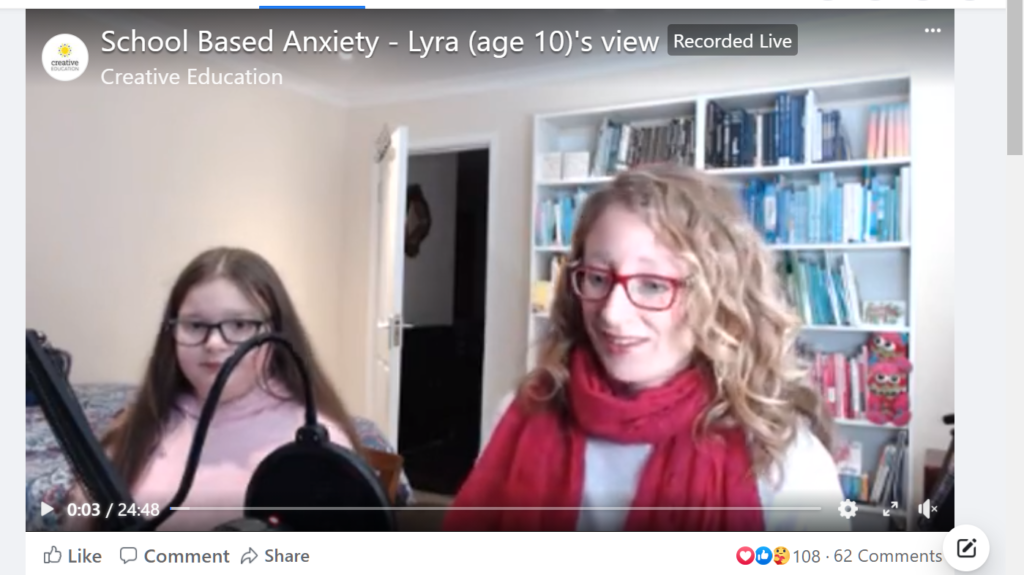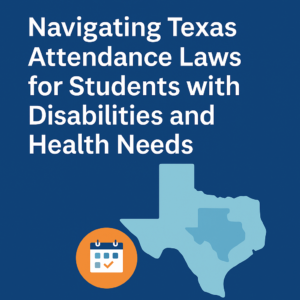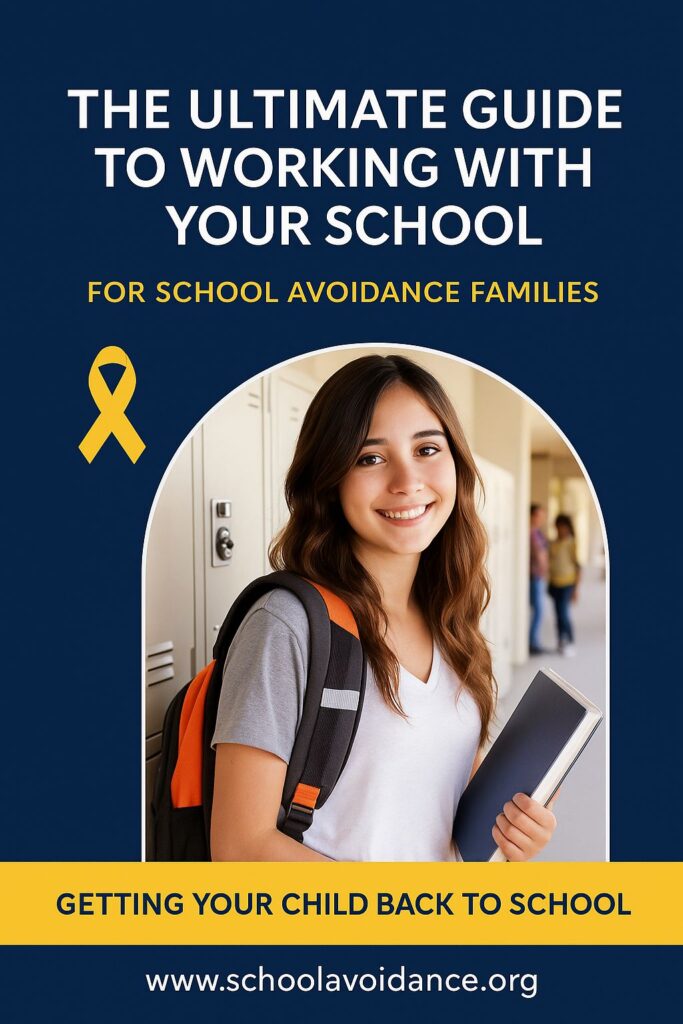This is one of my top ten learning resources regarding anxiety-based school avoidance. It is a video from Lyra, a very articulate 10 year old discussing her difficulties of going to school.
She provides keen insight into what has helped her get back to school. Lyra is the daughter of Dr. Pooky Knightsmith, one of my favorite experts on school anxiety.
I encourage you to watch, but I will summarize what Lyra said if you don’t have the time to watch it right now.
Lyra explains that she has battled anxiety-based school refusal. When it was at its worst, she says it was a lot to handle, and the mornings were tough.
She says that she had always been happy at school. She really liked her 4th-grade teacher and enjoyed that school year.
She said things started to turn in 5th grade when she had a teacher she did not like, which upset her. She explains that she had feelings of anxiety that she wasn’t sharing with anyone. She started to act out in school, and she says she did this to get attention—the attention and help for her worries and anxiety.
Pooky explains how avoidance comes from our worried brains going into FIGHT, FLIGHT, FLEE mode. Our worried brain is fearful, and each time we avoid what we are scared of, the worry and fear get bigger and bigger. Our brains assume the worst of the worst will happen.
As we can face parts of what we are fearful of, our brain sees that we managed it ok. That helps our brain realize that the worst of the worst won’t happen.
Lyra tells us what helped her get back to school. She says someone from the support team at school would greet her at the door. She was allowed to sit in the counselor’s office and get her ready to go into her classroom. Sometimes there were other kids there to talk with, and that was helpful as well. Pooky calls this a soft landing. Having a cool-down space.
She was also allowed to access this space and counselor anytime she was having a bit of trouble during the day. Knowing that she had this resource also made her feel safe.
Lyra talks about not liking the feeling of uncertainty. She talks about a fear of not having someone to play with during free time. She also says she feared what to say if the kids asked her why she wasn’t in school.
Lyra eventually changed schools, and she is attending school. She still has a counselor and a safe place to visit, first thing or during the day. She says sometimes she still needs this resource. She says the best scenarios were when the kids were allowed to play in the playground at the beginning of the day, before classroom time.
Lyra tells us that she still has a wobble here and there, where some days are harder. She shares that even she, a mental health professional, missed some signs at the beginning of Lyra’s anxiety.
Pooky notes that educators and schools should realize the emotional toll this takes on parents as well. She describes sometimes they had to work from Sunday lunchtime to work on getting Lyra to school Monday morn. Schools and educators remember that parents need your support as well.





